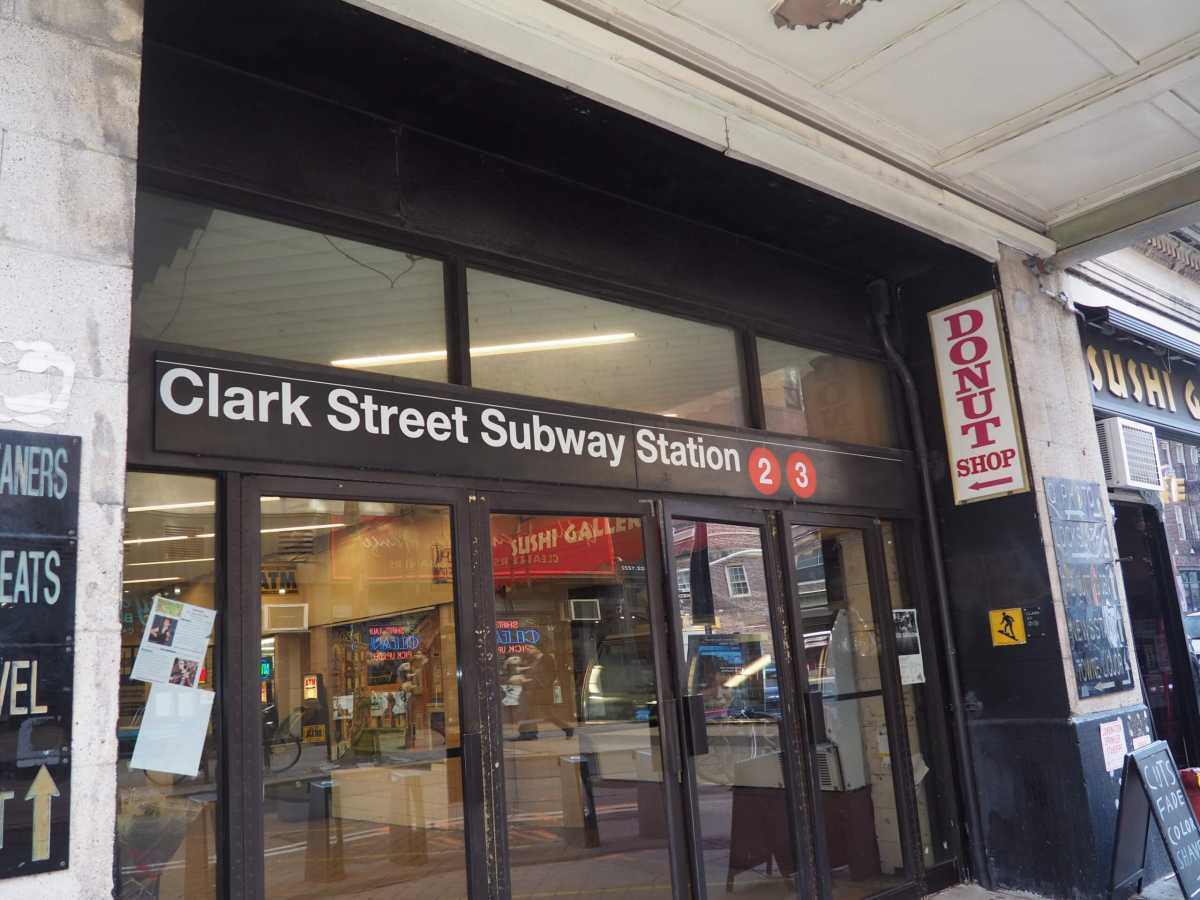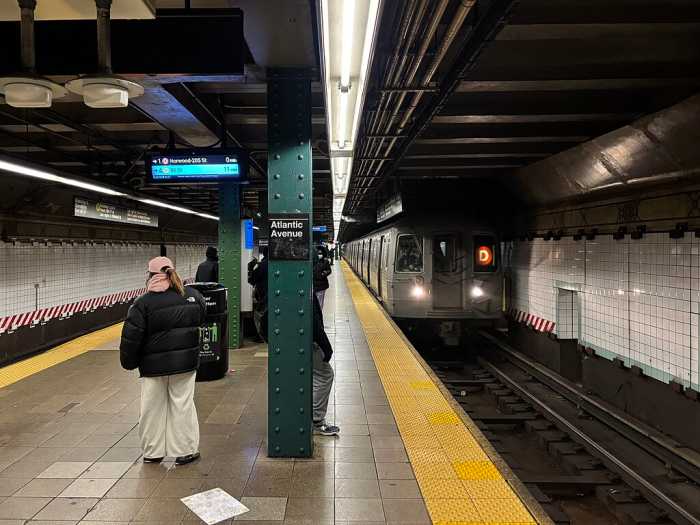The Clark Street subway stop will reopen for full service in April — which should help boost its mom and pop businesses, who have been suffering from the lack of foot traffic — the MTA recently told the Brooklyn Heights Association. Nurturing local retail has been a focus of the venerable neighborhood organization, which just surveyed pedestrians on Montague Street and is mulling whether closing the thoroughfare to cars could help revitalize it.
“Our goal is to create a pedestrian-friendly zone to encourage people to linger and shop so our existing businesses will flourish and new businesses will fill the empty spots,” said BHA President Erika Belsey Worth at the group’s annual meeting Thursday, February 24.
Speaking of traffic, the nonprofit continues to push government to address the failing BQE cantilever before disaster strikes. “The 20 years DOT says we’ve gained will be over in a blink of the eye,” said Belsey Worth. “Our current goals include keeping city and state eyes on the BQE.”
The group applauds recent efforts to reduce traffic on the strained roadway. “Reducing lanes from three to two was a very bold use of paint,” Belsey Worth said, referring to one of the new measures. On the plus side, traffic reduction has not increased traffic on surrounding surface streets, as had been feared, and the crash rate has plummeted, she said.
Whatever solution is found, the BHA’s priorities include eliminating vibrations, noise and pollution and maintaining the Brooklyn Heights Promenade and existing entrances to Brooklyn Bridge Park, she said. Founded in 1910, the influential group’s many accomplishments include preserving the neighborhood, stopping highways and creating parks.
Considering Covid challenges, the group held a remarkable number of events in 2021, including a fundraising party on the Promenade that preservationist Otis Pearsall and other Brooklyn luminaries attended. BHA plans to make its spring neighborhood cleanup an annual event and to expand its new and popular walking tours.
After skipping its biennial show house fundraiser in 2021 “for obvious reasons,” as Belsey Worth put it, BHA will hold its third one later this year; more details are coming soon. Despite postponing the show house, the group netted $56,000 and has assets of more than $722,000 for the past fiscal year, said BHA Executive Director Lara Birnback.
The group’s annual service awards went to the founders of the Brooklyn Heights Community Fridge and to Amerika Williamson for organizing the annual holiday tree lighting on the Brooklyn Heights Promenade.
The focus of this year’s meeting was a conversation with two experts about climate change and what to do about it.
“The battle to contain greenhouse gases was lost in the ’90s,” and climate change is already here, said author, consultant and climate change expert Eugene Linden. Emissions are 63 percent higher than they were some 30-plus years ago when the issue became public. In large part, that’s because the U.S. encouraged developing countries China and India to embrace coal. “The result is China’s emissions dwarf anyone else’s. India is third in emissions,” he said. “Everyone signed on to reduce emissions but everyone’s efforts were muted by emissions from China.”
While the public thinks climate change is far off, “it’s become quite clear since the ’90s that climate change is here. Each decade has been warmer than the last and they’re all setting records,” he continued. Weather-related disasters in the last decade cost $3 trillion.
“The perverse incentives prevail everywhere; there is enormous momentum to business as usual,” he said. Although “the hour is very late,” every nation on earth has to lower emissions, and “every nation can.”
Linden proposes a universal tariff that would apply globally to lower emissions at least 3 percent a year. In the U.S., businesses are starting to realize it’s in their interest to reduce emissions and “they are going to have to take the lead” because they “have the megaphone and control our politics,” he said.
Nonetheless, said fellow speaker and environmental journalist Leslie Kaufman, urgent action is needed from the government because “until the government puts on a carbon tax or tariff, we move too slowly or ineffectively.”
At home, individuals can help make a difference by boycotting products from bad actors, taking public transportation and not flying, and New York City can likely be powered entirely by renewable energy sources, they said.
If you want to watch the meeting yourself, a video recording is available.
A version of this story first appeared on Brownstoner.com






















